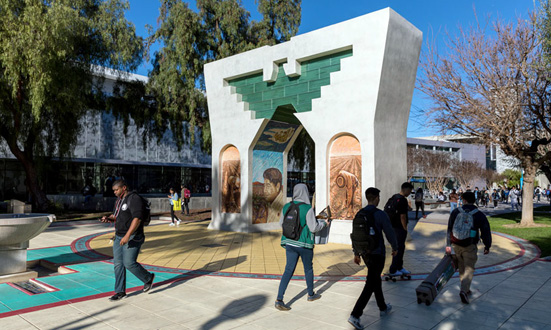Delta partners SJSU to advance renewable energy research
- June 16, 2020
- Steve Rogerson

Taiwanese power and thermal management company Delta is collaborating with San Jose State University (SJSU) in Silicon Valley to advance renewable energy research and talent.
The project underscores Delta’s corporate social responsibility (CSR) commitment to partner with universities and institutions in the USA to nurture talent capable of developing renewable energy technologies. Through the SJSU project, researchers who received funding from Delta developed a prototype power converter for PV panels that captures more than 30 per cent more energy than conventional technologies.
“Collaborating with renowned research institutions like San Jose State is critical for our industry to unlock further synergies in advancing energy-efficient technologies for a more sustainable future,” said Kelvin Huang president of Delta Electronics in the Americas. “Delta’s expertise in developing solar PV inverters with efficiencies as high as 99.2% and in integrating smart green solutions has been instrumental in furthering the project. This initiative also reflects Delta’s focus on CSR, which entails cultivating long-lasting partnerships with key stakeholders for further sustainable development.”
The project met several milestones, including the production of a demonstration-scale micro integrated converter that uses a magnetically coupled architecture to reduce the size, weight and cost of each converter. In the prototype, each micro integrated converter was paired with an individual PV panel that was part of a larger string. By structuring the system in this fashion, each converter was able to increase the energy output of its panel by processing only a fraction of its generated power. Consequently, the overall system efficiency increased significantly. Results showed that captured energy spiked by more than 30 per cent in shaded environments.
“The overarching purpose is to develop new photovoltaic configurations that can extract as much energy as possible, while using low-cost interfacing systems to convert the harvested energy to usable levels,” said Mohamed Badawy, assistant professor of electrical engineering at SJSU, who led the project. “We are extremely grateful to Delta for providing the funding and the technical expertise to make this project a success.”
Since Badawy is also an experienced educator, he’s kept an eye on the project’s effect on his students. Two students on this project just received their master’s degrees, and two more students are planning to pursue this project as their master’s research topic.
“The students worked on a practical problem under real pressure to deliver,” he said. “They were always presenting their work during the SJSU-Delta meetings, which helped develop their professional skills. They also learned how to build partnerships, which is an important career skill.”
The SJSU collaboration caps an impressive year for Delta’s CSR programme in 2019, when the company worked with a dozen academic institutions throughout the San Francisco Bay Area to educate nearly 1000 students about the importance of energy innovation, sustainability and protecting the environment. For 2020, the company plans to increase its outreach to underserved communities by launching new classes and workshops.
“This experience has proved extremely rewarding for our staff, as we bridge the gap between industry and academia,” said Peter Barbosa, director of Delta’s Milan M Jovanovic Power Electronics Lab in Raleigh, North Carolina. “The fresh perspectives we gained are invaluable as we solve some of the energy industry’s biggest challenges.”
The founding campus of the 23-campus California State University system, San Jose State provides a comprehensive university education, granting degrees in 250 areas of study offered through its nine colleges. With more than 35,000 students and nearly 4370 employees, SJSU continues to be an essential partner in the economic, cultural and social development of Silicon Valley and the state, annually contributing 10,000 graduates to the workforce. Of its more than 260,000 alumni, 60 per cent live and work in the Bay Area.




